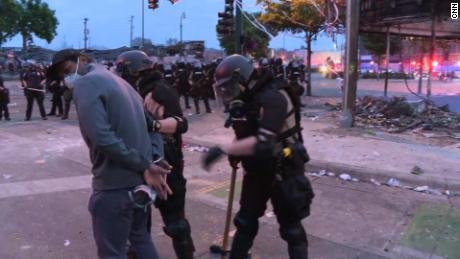
Family Ties
Our childhoods often affect our adult career choices.
Children of dentists or race car drivers often become dentists or race car drivers themselves.
The same is true of our judicial system. Children of cops or lawyers often become cops or lawyers.
But there is another aspect to this family connection.
Sometimes, the abuse or pain our families experience drive us into certain occupations.
How many medical doctors do you know of that were driven into this field because an older relative that died of a disease,
and they had to watch that loved one be consumed by it?
And how many cops were themselves victims or witnesses of abuse, as children?
The percentages might amaze us.
Now, take this scenario to public defenders. How many people are specifically in the profession of public defense because they believe a parent or relative was mistreated by the judicial system?
I have no trouble claiming, without statistics to quote, that many public defenders were once kids whose families were disrupted by their parents’ legal troubles.
Few children can understand why a parent would need to be arrested.
Childhood difficulties create advocacy of some sort. There’s no way around it, and this is natural.
It is one of three ways that advocacy is created.
What is not fine, is when our sense of right-and-wrong is altered by immature childhood loyalties.
I have seen so many crime shows where there is clear evidence that one parent killed the other parent, yet the teen and young-adult children vigorously refuse to believe that the surviving parent was guilty of the crime.
There are many children in our country whose parents are suddenly taken to jail, or arrested before their eyes,
and they have to process the loss. Some of them, with the help of older relatives, decide that our judicial system is a flawed enemy that cannot be rehabilitated, but needs to be destroyed.
When childhood tragedy drives people into the judicial system, either as public defenders or as police officers,
care needs to be taken that they not abuse their particular power in a way that victimizes the innocent.
This means the police shouldn’t accuse innocent people, and defenders shouldn’t try to turn guilty people out of jail
who will then harm even more innocent people.
Question: Who does the most damage to society:
The damaged cop who suspects every ordinary person is guilty of something,
or the damaged public defender who thinks every inmate is innocent and unjustly charged?
When I used the term 'damaged' it means someone who cannot sort the facts about an individual and their situation,
but walks into a situation with a prejudice of guilt or innocence.
Now then, imagine someone who has shared an orbit with a crime,
being accused by a detective of being the guilty of the crime,
then that charged being dispelled,
only to be asked to testify in court about the event,
only to treated a dog by a defense attorney who is trying to free the true culprit.
This scenario can give the most honest person a dim view of our judicial system.
I grew up with a saying about contentious people, "He's just an argument lookin' for a place to happen."
No one should be like that, though many people pride themselves on being that way.
Here is a Bible verse from the Old Testament that reveals God’s heart about justice.
And God is the final arbiter of what pure justice is.
Leviticus 19: 15:
“Do not pervert justice; do not show partiality to the poor or favoritism to the great, but judge your neighbor fairly.”
******************************************************************************************************************************************
To follow up on my views on advocacy, let me say that I believe there are at least three reasons for someone to undertake an advocate's lifestyle.
One path to social advocacy is from childhood difficulties. A lot of people simply reach adulthood with an abiding anger in their bosom. They are like teapots, stepping into adultihood always on the fire, shooting out steam. Advocates who see themselves as a St. George or Joan of Arc, when in fact, there is an angry child inside, looking for an outlet for their anger, that they are not always free to express, because it would damage the few relationships they have in life.
Another path to advocacy is from compasssion-formation, either because of a naturally-compassionate personality,
which many people lack, or from compassion-training by how they were raised.
A third source of advocacy has no real compassion in the recipe. This type of advocacy is all about a guilty conscience looking for relief from guilt. So this person advocates for an unrelated cause, to ease their conscience for past wrongs. Some adults are vegans or animal rescuers because they have harmed others when they were younger.
*****************************************************************************************************************************************
On a related note, I read repeatedly about people who grew up with mentally-unstable parents that are drawn to study psychology in college. It’s like: first, they are trying to figure out why a relative is unstable, and then they try to normalize that instability.
Sorry, leaving your kids without food three or four days a week will never be okay.
Letting a child be abused by a step-parent will never be right.
Some things will never be good and proper, but some people try to make it so, so they can feel good about their family.
But by doing so, they make life worse for other kids.
And sometimes, what people want to call misbehavior a mental illness, is plain evil. Humans are capable of evil.
Those who try to excuse the evil in others, make life more difficult for the children of the world.
Eric J. Rose
middlegrademysteries.com
photo: CNN